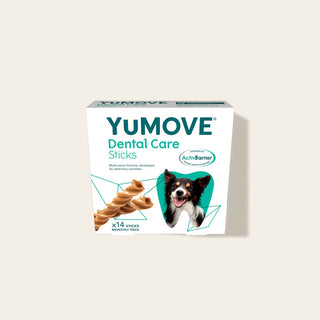

Guide To Cleaning Your Pets' Teeth
Did you know that around 80% of dogs and cats will have some form of dental problem before their fourth birthday? Thankfully, there’s lots we can do to help our pets have healthier mouths. We’ve been investigating the benefits of cat and dog teeth cleaning regimes.
Why you should clean your dog or cats’ teeth
If your goal is a happy, healthy pet, teeth cleaning should be part of your regular routine. This is because – just like people – pets can get smelly breath and issues with their gums if oral hygiene is left to chance. In the longer term, rotten or infected teeth and gums can leak bacteria into the bloodstream, leading to problems in your pet's heart and kidneys, which is much more serious than just bad breath.
Dental details, facts, and figures
- If you don’t have a regular dental routine for your pet's teeth, most vets recommend an annual ‘dental’ – these can be expensive and require a general anaesthetic.
- A ‘dental’ (veterinary clean, descale, and polish under general anaesthetic) can cost between £150 and £600 depending on your vet.
- If your pet needs teeth extracted, these costs increase significantly – and so will your pet’s recovery time.
- Some dog breeds are more prone to dental issues than others – very short muzzled breeds (brachycephalic), dogs with narrow, pointed muzzles (like sheltie, poodles and dachsie), and some tiny-mouthed toy breeds seem to struggle more than average.

What’s causing that doggie breath?
All mammals have naturally-occurring bacteria in their mouths. When these bacteria combine with proteins and saliva in the mouth, a slimy substance called a ‘biofilm’ forms which coats the surface of the teeth. This is what we know as plaque – the stuff dentists recommend we remove by regularly. Left unchecked, plaque builds up and is mineralised into a harder substance called tartar, which can result in rotten teeth for pets and people.
Teeth cleaning: domestic Vs. wild animals
Many people dismiss the idea of cleaning their pet’s teeth as they may think ‘it’s not natural’ or ‘wolves and tigers don’t need their teeth brushing!’. However, our domestic pets live very different lives to their wild cousins.
Wild animals hunt for food and eat a predominantly raw diet that contains lots of natural teeth cleaning materials, like raw bones and their prey’s hides. Despite this, they can experience teeth issues too. The difference is that wild animals can’t visit a vet to remove sore teeth or treat abscesses. Sadly, if problems become severe enough to interfere with hunting or eating, the animal simply won’t survive.
Meanwhile, our domestic pets typically eat a very different diet. Though crunchy kibble can help clean teeth to a degree, lots of us feed soft foods so our pets need a helping hand to keep their mouths healthy. Even if you feed only dry food, some pets still experience dental problems if you don’t clean their teeth regularly.

Pet teeth cleaning: what to use and how often
So, how do we clean our pet’s teeth ourselves? There are lots of methods that support their teeth and gums at home. Here are some simple ways to keep their pearly whites shining…
Brush their teeth
There are lots of products on the market that are designed to make daily brushing easier, such as toys, finger brushes and brushes with silicone bristles, but a human toothbrush with soft bristles will work just as well. For guidance on techniques, it’s worth asking your veterinary nurse for a lesson.
Recommendations vary on how often you should brush your pets’ teeth – from daily to twice weekly. The most important thing to remember if you are going to use a toothpaste, use one that’s specially designed for pets – many human toothpastes contain xylitol, which is toxic to our furry friends.
Dental chews and sticks
Dental sticks and chews are an excellent way to maintain clean teeth regularly while giving your pet a tasty treat at the same time. These chews and sticks can be given daily, although adjust their food ration accordingly, to avoid excess weight gain.
Chews and sticks are formulated with ingredients to target plaque and tartar and are often designed in shapes that scrape against the tooth to reduce any plaque build-up on the surface of your dog’s teeth. Read our guide on getting the most from YuMOVE Dental Sticks.
Do’s and don’ts of dental care for dogs and cats
DO
- Be calm and positive – your pet will pick up your emotions if you’re stressed or in a hurry to finish.
- Start young – get your puppy or kitten used to teeth cleaning.
- Use a pet formula paste or polish rather than one intended for humans.
DON’T
- Try human toothpaste – artificial sweeteners, fluoride and xylitol can be poisonous to pets.
- Rely on veterinary dentals alone – they require an anaesthetic that’s a risk to pets of all ages.
- Give up on older pets – it’s never too late to start cleaning your cat or dog’s teeth.
How often do you clean your pet’s teeth? Head over to our Facebook and Instagram pages to tell us more about your cat or dog’s dental routine in the comments.




